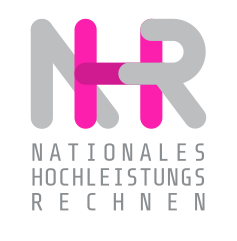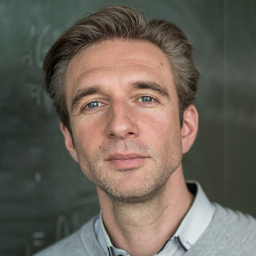Quantum Computing and Integer Programming completed
This pilot project tests a workflow from the design of hybrid quantum-classical algorithms to their simulation using quantum simulators on HPC hardware. The focus is on Noisy Intermediate-Scale Quantum (NISQ) algorithms and Quantum Approximate Optimization Algorithms (QAOA) that can approximately solve special problem subclasses.
🧑🎓 Project Members
🪙 Funding
This project was being funded by the Nationales Hochleistungsrechnen from April 2021 to December 2021.

🔬 Project Description
In the long term, quantum computing will play a crucial role in high-performance computing due to its ability to operate using quantum bits (qubits) that can exist in a superposition of states, allowing for exponentially more powerful computations than classical computers, which rely on bits that are either in the state of 0 or 1. However, the sensitivity of quantum systems to their environment makes reducing noise a major challenge in building practical quantum computers. Techniques like errorcorrection codes, fault-tolerant quantum computing, and quantum error correction have been developed to mitigate the effects of noise, but in the short to medium term, Noisy Intermediate-Scale Quantum (NISQ) algorithms are expected to solve special subclasses of problems using quantum computing. Despite the challenges posed by noise, quantum computers have already shown remarkable capabilities in solving certain types of problems that are difficult or impossible for classical computers, such as combinatorial optimization problems like routing, tour scheduling, and optimal cooling of data centers, which are often NP-hard and cannot be solved in an acceptable time even for moderate problem sizes. NISQ approaches, when combined with classical methods, offer a promising solution to quickly finding high-quality solutions to such problems. The aim of our NHR pilot project was to develop hybrid quantum-classical algorithms and simulate them on classical hardware, as well as test them on quantum hardware if available. Initially, our focus was only on combinatorial optimization problems, but our scope has since expanded to encompass a broader range of problems that can be described using quantum states and solved using quantum computers. The project is divided into three sub-aspects.
- Identification of mathematical problems that can be solved using (noisy) quantum algorithms in combination with classical approaches.
- Development and design of hybrid quantum-classical approaches for selected examples of the problems identified in 1.
- Simulation and verification of quantum-classical hybrid algorithms. Throughout 2022, our team of project partners has been engaged in a multitude of projects and has published numerous publications that have led to significant advancements in the development of hybrid quantum-classical algorithms and their simulation. Moreover, our research has expanded beyond the scope of combinatorial optimization problems to cover a wide range of topics, enabled by various mathematical tools, including but not limited to tensor decompositions and algorithms, convex optimization, operator theory, numerical methods for partial differential equations, and data-driven and kernel-based techniques.


